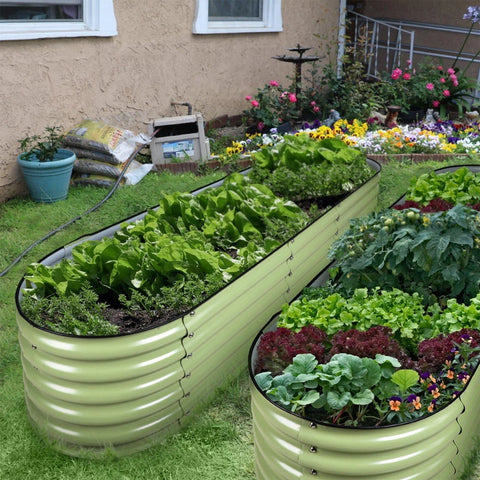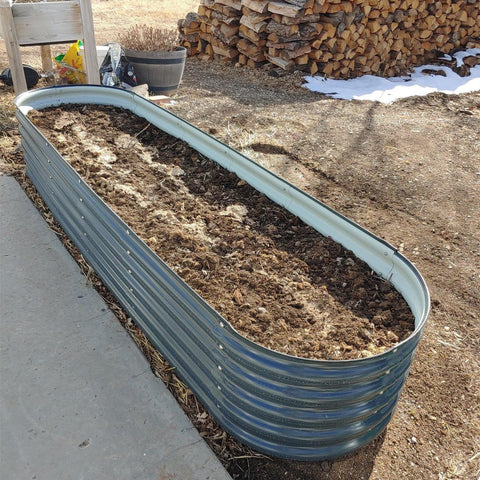Tips from Olle Garden Bed: The Secret Lives of Soil Microbes: Unveiling the Hidden Heroes of Gardening
A time-honored and gratifying pastime, gardening gives us the ability to get to connect with nature, create lovely landscapes, and even put fresh, homegrown food on the table. While we frequently credit things like sunlight, water, and fertilizers for a garden's success, there is a secret world beneath the soil's surface that plays a key role in making sure your plants thrive. You can use the garden beds to grow plant.
We'll dig into the unseen world of soil microbes, the heroes of gardening who are frequently neglected, in this blog post. These minuscule creatures are incredibly powerful, promoting healthy soil, nutrient cycling, pest management, and plant growth. You will have a greater understanding of the significance of preserving this unnoticed ecology in your garden as we delve deeper into the fascinating world of soil bacteria
The Diversity of Soil Microbes
Microbes, which include bacteria, fungi, archaea, and viruses, are microscopic organisms that inhabit the soil. The world beneath your feet is teeming with life, and these tiny inhabitants are incredibly diverse. There can be millions of individual microbes in just a single teaspoon of healthy soil!
Bacteria and fungi are two of the most prominent groups of soil microbes. Bacteria are known for their role in decomposing organic matter and nutrient cycling, while fungi form a vast underground network of mycelium, aiding in nutrient absorption and connecting plants in a complex web of symbiotic relationships

The Benefits of Soil Microbes
- Nutrient Cycling: Soil microbes are nature's recyclers. They break down organic matter, such as dead plant material and animal remains, into essential nutrients like nitrogen, phosphorus, and potassium. These nutrients are then made available to plants, supporting their growth and development.
- Disease Suppression: Some soil microbes act as natural protectors of plants. Beneficial bacteria and fungi can help suppress harmful pathogens by outcompeting them for resources or producing compounds that inhibit their growth. This natural defense system reduces the need for chemical pesticides.
- Improved Soil Structure: Microbes play a vital role in improving soil structure. Their secretions and activities help create stable soil aggregates, preventing erosion and increasing water retention. This, in turn, promotes healthy root growth and enhances overall soil quality.
- Symbiotic Relationships: Many plants form symbiotic relationships with soil microbes. Mycorrhizal fungi, for instance, form mutualistic partnerships with most plants, aiding in nutrient absorption and water uptake. Legumes, on the other hand, establish associations with nitrogen-fixing bacteria, enriching the soil with this essential nutrient.

Cultivating a Microbe-Friendly Garden beds
Now that we understand the importance of soil microbes, let's explore how you can create a microbe-friendly garden beds:
- Minimize Soil Disturbance: Avoid excessive tilling and digging, which can disrupt the delicate microbial balance. Instead, use no-till or low-till gardening techniques to preserve the soil ecosystem.
- Amend with Organic Matter: Add compost and organic materials to your soil. This provides a continuous source of food for soil microbes, encouraging their growth and activity.
- Avoid Overuse of Chemicals: Limit the use of synthetic fertilizers and pesticides, as they can harm beneficial microbes. Opt for organic alternatives whenever possible.
- Plant Diversity: Incorporate a variety of plant species in your garden. Different plants support different microbial communities, enhancing overall soil health.
- Mulch: Mulching your garden beds helps retain moisture and temperature, creating an ideal environment for soil microbes.
The secret lives of soil microbes are a testament to the intricate balance of life that exists beneath our feet. These hidden heroes of gardening perform vital functions that contribute to the health and vitality of our plants and ecosystems. By nurturing this hidden world through sustainable gardening practices, we can unlock the full potential of our gardens, fostering beauty, biodiversity, and abundance.
As you tend to your garden beds, take a moment to appreciate the bustling, microscopic metropolis beneath the surface. The soil microbes are the unsung champions of your garden, working tirelessly to ensure its success, and they deserve our admiration and care.
